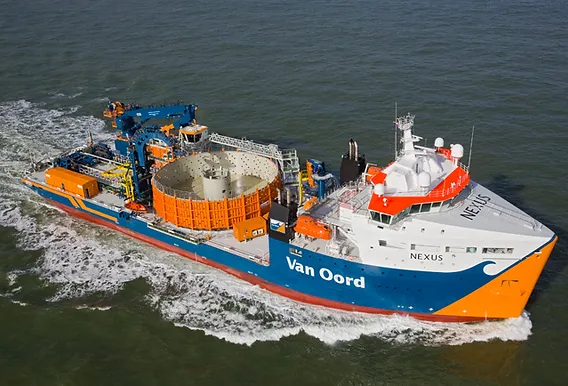Introduction: The Growing Importance of Regional Finance
The growing significance of local money is undeniable in the present international economy. As economies become more interconnected, regional finance local economic systems perform a critical position in surrounding sustainable development and ensuring financial stability. But what exactly is local money? In this short article, we’ll investigate the key areas of local money, how it operates, and why it is required for growing local economies.
Local money identifies the economic methods and services tailored to generally meet the needs of specific parts or localities. While international money is concerned with international areas, local money focuses on the neighborhood stage, ensuring resources are focused toward fostering development, employment, and sustainability.
What is Regional Finance?
Local money identifies the allocation and administration of economic resources in just a specific geographical region. Unlike national or international money, which requires large-scale opportunities and financial methods, local money highlights the particular economic needs and development options in just a identified local area.
The Role of Regional Finance in Economic Development
One of many main goals of local money is to operate a vehicle financial growth in just a local area. Including stimulating organization development, fostering employment options, and ensuring that important infrastructure is created and maintained.
In many parts, especially emerging or underserved parts, local economic services can be the key to unlocking the possible of companies, entrepreneurs, and communities. Local money assists join local resources to local needs, developing a more sustainable and resilient economy.
Key Components of Regional Finance
1. Local Banks and Financial Institutions
Local banks and economic institutions perform a crucial position in local finance. By providing loans, mortgages, and economic services tailored to the needs of companies and residents, these institutions help support financial activity on the ground level. In many cases, these banks tend to be more attuned to the particular financial makeup of the place, allowing them to produce informed and successful economic decisions.
2. Local Investment Resources
Local expense funds are designed to station capital in to local companies and growth projects. These funds are generally put up by governments or individual businesses and are aimed at fostering development and job creation. By trading directly in local projects, these funds help promote local economies and promote long-term prosperity.
3. Government Grants and Subsidies
Governments usually give economic support through grants and subsidies aimed at increasing local financial performance. These could contain funding for infrastructure projects, business growth, or initiatives that address local difficulties like unemployment or poverty.
4. Public-Private Partnerships
Public-private partnerships (PPPs) are an increasingly frequent means of financing local growth projects. These collaborations between the government and individual businesses permit the pooling of resources and experience, helping to address local financial needs more effectively.
The Benefits of Regional Finance
1. Financial Balance
One of many key great things about local money is their power to supply financial balance in just a region. By concentrating on local expense and growth, local money assists produce a more balanced and resilient economy. It reduces dependence on national or international economic systems, creating local economies less at risk of international financial shifts.
2. Job Development
Local economic opportunities usually result in the generation of new companies and job opportunities. By supporting small and medium-sized enterprises (SMEs), local money fosters an entrepreneurial environment that assists minimize unemployment and generates sustainable livelihoods.
3. Infrastructure Progress
Local money helps the growth of important infrastructure, such as streets, schools, hospitals, and public transportation systems. That infrastructure is required for the long-term financial development of a region and ensures that towns have the resources they should thrive.
4. Getting Outside Investment
A well-developed local economic system may entice additional investors who are trying to capitalize on the possible of a certain region. These investors may bring additional capital, experience, and advancement that can more increase the region’s financial development.
Challenges in Regional Finance
Regardless of the numerous benefits, local money looks several challenges. These include restricted access to capital for small companies, the problem of attracting additional expense in certain parts, and the requirement for specific economic products and services and services that cater to the initial needs of local populations.
How Regional Finance Contributes to Sustainable Development
Sustainable growth is just a key concentration of local finance. Through targeted opportunities, local economies may grow with techniques which can be equally environmentally and socially responsible. Like, local money will help finance alternative energy projects, green infrastructure, and other sustainability initiatives that minimize environmental affect while fostering financial growth.
Case Studies: Successful Regional Finance Initiatives
1. The Role of Local Money in Developing Nations
In many developing places, local money has shown to be a fruitful tool for selling financial development. By concentrating on local needs and options, parts may improve their economic infrastructure and entice opportunities that donate to job generation, poverty decrease, and sustainable development.
2. Local Money in Created Economies
Even in developed economies, local money stays crucial. In places just like the American Union and the United States, local economic systems help make sure that smaller parts and rural parts have access to capital and resources which can be required for their financial success.
Future of Regional Finance
The ongoing future of local money appears promising. With the growing significance of sustainability, digital transformation, and local growth goals, there is a better requirement for tailored economic solutions that meet local challenges. As engineering remains to evolve, local economic systems will probably become more connected, translucent, and accessible.
Frequently Asked Questions about Regional Finance
1. What are the main objectives of local money? The main objectives of local money are to promote local financial growth, promote job generation, and support the development of companies in just a specific region. By providing localized economic services, local money assists travel sustainable growth.
2. How does local money gain small companies? Local money helps small companies by providing access to tailored economic products and services like loans and grants. Local economic institutions tend to be more knowledgeable about the particular difficulties small companies experience in their place, letting them present more appropriate economic solutions.
3. Can local money help reduce income inequality? Yes, local money may help reduce income inequality by making financial options in underserved areas. By fostering the development of local companies, local money can produce jobs and promote wealth generation in disadvantaged regions.
4. What are the difficulties in local money? Issues in local money contain restricted access to capital, problems attracting additional expense, and the requirement for specific economic products. Also, local economies can be afflicted with international financial variations, which can affect their economic stability.
5. How can local money donate to sustainable growth? Local money may donate to sustainable growth by funding projects that support environmental, social, and financial goals. Instances contain opportunities in alternative energy, eco-friendly infrastructure, and sustainable agriculture.
Conclusion: The Importance of Regional Finance for Future Growth
Local money plays an important position in fostering financial growth, job generation, and infrastructure improvement. By providing targeted economic services and opportunities, it will help produce resilient local economies which can be less dependent on international economic systems. Whether in developing or developed parts, local money offers a pathway to sustainable development and prosperity for towns worldwide.











Leave a Reply